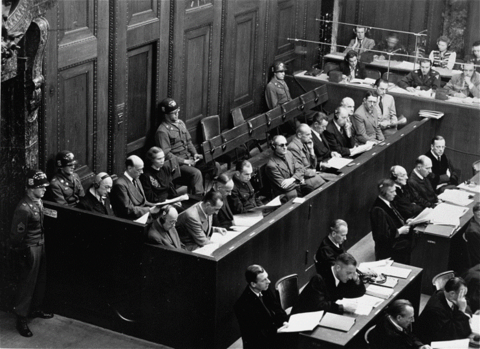The RuSHA Trial, that is, Case #8 of the Subsequent Nuremberg Proceedings, dealt with 14 defendants (Ulrich Greifelt, Rudolf Creutz, Konrad Meyer-Hetling, Otto Schwarzenberger, Herbert Huebner, Werner Lorenz, Heinz Brueckner, Otto Hofmann, Richard Hildebrandt, Fritz Schwalm, Max Sollmann, Gregor Ebner, Guenther Tesch and Inge Viermetz), all leading officials of the SS Rasse und Siedlungshauptamt (Race and Resettlement Main Office). They were indicted on three counts:
- crimes against humanity
- war crimes
- membership in criminal organizations
“The defendants were accused of criminal responsibility for many aspects of the Nazi racial programme, including the kidnapping of ‘racially valuable’ children for Aryanisation, the forcible evacuation of foreign nationals from their homes in favor of Germans or Ethnic Germans, and the persecution and extermination of Jews throughout Germany and German-occupied Europe.”
Eight defendants were found guilty on all counts, five only of membership in a criminal organization, and one not guilty. Ulrich Greifelt, the main defendant (the “author” of Regulation 67/1), was sentenced to life imprisonment. Heinrich Himmler was not put on trial because he committed suicide after being captured.
